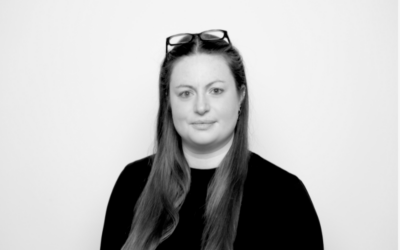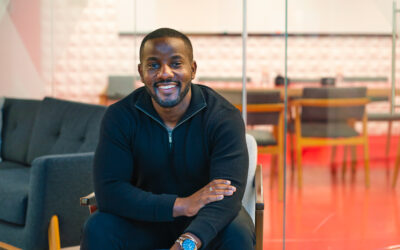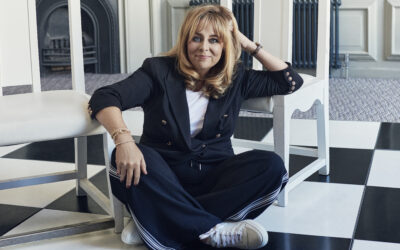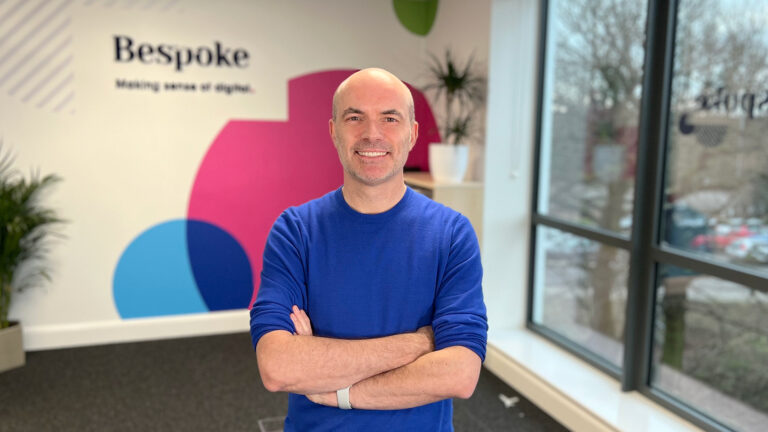Chorley-based digital lead generation agency Bespoke has recently celebrated its 20th anniversary in business.
Its Co-founder, Steve Brennan, is also the author of ‘Build Your Digital Marketing Strategy’, a handbook for in-house digital teams. With experience spanning digital strategy, he is also an entrepreneur coach for Dent Global.
Bespoke is based at the Strawberry Fields Digital Hub and supports a range of service and manufacturing businesses, using its in-house team to design and build websites for clients supported by SEO, PPC and CRO campaigns.
We found out the lessons Steve has learnt.
Which single daily habit or practice could you not do without?
The main thing is staying focused on goals. All of life is distractions these days.
The key is refocusing on goals each morning and making sure the steps to move towards them are done regardless of whatever else happens in the day.
I find it funny that entrepreneurship is presented as glamorous – it isn’t, it’s about turning up every day whether you want to or not, and doing great work that helps you and your team get where you need to be.
It’s about managing time, focus and relationships. Last year, I introduced a new habit of making a “done list” rather than a “to-do list”. At the end of each day and week I note down progress. I always think we don’t look back enough and recognise how far we’ve come.
What’s been your luckiest break?
I sometimes think about the coincidence of the time I was born and how lucky I was. I was a child of the 80s and massively into music at a time when music tech was advancing so quickly. Pop music totally changed and hip hop and acid house became popular.
I followed all that really closely and it just felt like a time of really fast innovation with tech. In the 90s, I was at university as the digital age began. So I learned traditional photography, TV, radio and advertising techniques while considering how the internet would change everything.
I started growing a business in the 2000s when social media and YouTube began. Suddenly all learning was open-source, you just had to have the hunger to go and learn it and do it. It really levelled the playing field. So if I’ve had a lucky break, perhaps it’s simply the year I was born.
What’s your best failure?
Obviously there are so many. There’s only one thing I would do differently if I had my time running an agency again and that’s to hire in my senior team from the very beginning.
It’s difficult because you have no money at the beginning so it’s hard to resist building organically, especially as a very young entrepreneur. But if I started a business now I would get lots of funding and get reliable experienced people in the key roles from the start.
I’m really proud of what we’ve done and the values on which we’ve built the agency, but our first 10 years was just learning on the job. Part of the reason I wrote the book is because it took so long to learn what really brilliant marketing looks like. I thought we should share that learning, so those earlier in the journey can make progress more quickly.
What is the best investment you’ve ever made, either financial or time?
All the best investments I’ve made have been in people. It’s a funny thing to hire a stranger into your team, and commit to a contract where you’ll potentially pay them hundreds of thousands over time.
But when you connect with somebody well-matched through that process, it’s a win-win and I love to see that. There are few things more enjoyable than seeing somebody in our team really flying, making progress with their career progression, and energised every day.
When I look back on our 20 years so far I see it a little like a hall of fame – there are so many people who’ve made a big impact on moving the agency forward. I’ll always be grateful to those people and will always have time for them.
Which book would you recommend others to read and why?
I’d generally recommend not reading too many books – just pick a couple that resonate and start implementing their methods. It’s much more productive to read the key book for you three times than to read three different books.
One that can help almost anybody is James Clear’s ‘Atomic Habits’. It shares an elite performance mindset anyone can adopt.
Obviously I’d advocate writing your own book over reading somebody else’s. Just the process of writing is worthwhile. When I finished writing my book, I thought, “even if I burned the manuscript now it would still have been worth doing this just for how much helped me package my experience in a way that can be helpful for others.”
What one piece of advice would you give your 21-year-old self?
At the beginning of each year, take a calendar and block out time to do the things you really love to do, with the people you really want to spend time with, and in the places you really want to go. Make that the priority every year and let everything else fit in around that.
Who or what has had the single biggest influence on your working life?
I’ve come to realise it was my childhood. My dad was an alcoholic and we were a single-parent family so had only one income, whereas most of my friends’ families had two. As there was not much money around, I started working from a young age – in high school I must have worked more hours and earned more than anybody else.
I also became entrepreneurial around that time and set up some small businesses as a teenager. The circumstances led to me developing a good worth ethic and experimenting with buying, selling, marketing and design at a young age. It didn’t feel like anything unusual at the time, it was just what needed to be done, but looking back it was like a crash course in entrepreneurship running alongside the more traditional education we got at school.
Tell us something about you that would surprise people.
I don’t know if it would surprise people, but alongside building the agency I’ve had a passion for music I’ve explored in different ways. In the first eight years of the agency I DJ’d every week at a nightclub.
Then I got into writing and recording music which led to me working with some of the bands and producers I’d really loved. That was really exciting looking back, and it’s amazing what doors open when you just have a go at something and make a few phone calls.
I ended up making an album at Abbey Road which was pressed to vinyl. It made me connect the dots – at primary school age I used to listen to my dad’s Beatles records and somehow I’d ended up in their studios as an adult.
It’s important as an entrepreneur to have interests like that to immerse yourself in. Running a business is quite full-on at times, so having something to balance it like that helps you stay fresh and see everything in a broader context. It creates a good balance.
How will the COVID crisis change work for the better?
Looking at it purely from a business point of view, being forced to step back and review how we operate was so valuable. We love workshops and planning sessions at Bespoke but they’re normally three hours. In 2020 we effectively did a three-month bootcamp, streamlining the agency from top to bottom and focusing just on the bits that are really important.
We’ve had our best two years ever since then, been close to fully booked throughout, and have been doing great work and enjoying it. Then of course there’s hybrid working. It immediately felt completely natural. Did we really used to commute every day and cram into packed trains or sit in traffic jams on congested motorways? We really enjoy our whole team days now too – again, a good balance.
What does success look like to you?
Achieving goals as part of a great team who are all making progress.











